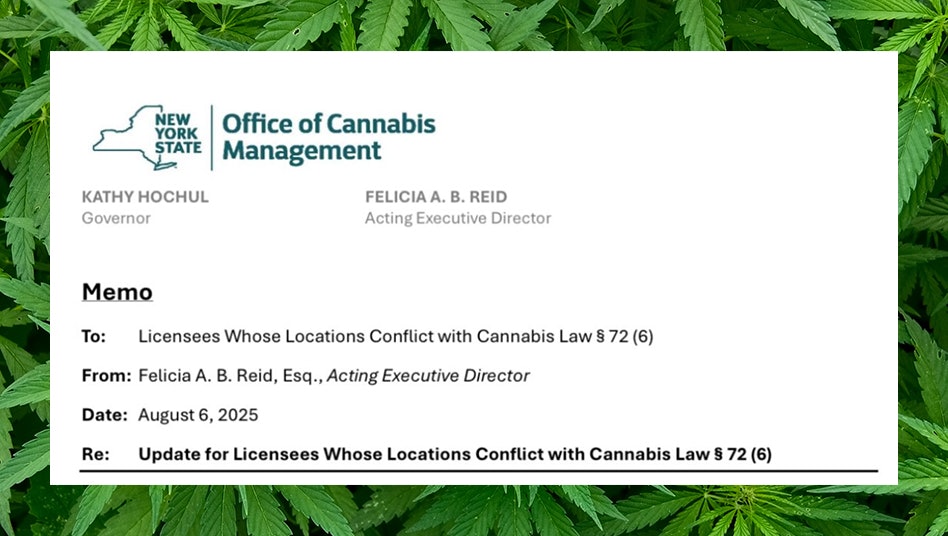Highlights;
- New York’s cannabis regulator sent a letter to 108 licensees with locations conflicting with state law, instructing them not to close, move, or alter operations.
- The issue arose from incorrect 500-foot buffer zone measurements near schools, initially miscalculated in 2022.
- The OCM now measures from dispensary entrances to school property lines for compliance.
- 44 applicants must find new locations, with a $15 million relief fund offering up to $250,000 each.
- Stakeholders criticize the fund as insufficient, highlighting the financial and operational challenges.
- Impacted licensees can continue operating while awaiting legislative fixes, with renewals delayed pending legal changes.
New York Cannabis Regulators Address Licensees Amid School Proximity Issues
New York’s top cannabis regulator has instructed 108 licensed businesses whose locations conflict with state law not to close, move, or alter their operations. Felicia A. B. Reid, acting executive director of the Office of Cannabis Management (OCM), sent a letter on August 6 following the office’s July 28 correction regarding school proximity measurements. The correction revealed that the OCM had misled the Cannabis Control Board (CCB) in 2022, leading to the erroneous approval of dispensaries located too close to schools.
The OCM has shifted its measurement practice for the 500-foot buffer zone, now measuring from a dispensary entrance to the nearest property line of a school’s grounds to comply with state cannabis law. Reid emphasized that the term “impacted licensee” refers only to entities with final licenses approved by the CCB, excluding those with provisional licenses still in the application process.
The OCM has notified the 108 impacted licensees and 44 impacted applicants, requiring the latter to secure new, compliant locations before proceeding. While a $15 million fund is being established to provide relief of up to $250,000 per impacted applicant, some stakeholders argue this amount is insufficient. Curaleaf Executive Vice Chairman Joseph Lusardi criticized the relief as a “slap in the face,” highlighting the significant costs associated with securing compliant locations.
Reid clarified that the 108 licensees are not required to close, relocate, or cease operations. The OCM is not recommending license revocation and is pursuing legislative changes to allow impacted businesses to remain at their current locations. Governor Kathy Hochul’s office and the Empire State Development are supporting this effort.
State Senator Luis R. Sepúlveda introduced legislation to grandfather in locations for impacted dispensaries, though it remains unclear if lawmakers will address the issue before January 2026. The OCM has indicated that impacted licensees can submit renewals and continue operating while awaiting legislative resolution.
Reid acknowledged the previous OCM leadership’s misguidance and reassured businesses of Governor Hochul’s commitment to resolving the issue. However, concerns persist about the potential impact on insurance and banking services for licensees during this uncertainty. Additionally, it was revealed that a lawyer alerted regulators to the measurement issue 16 months earlier, though the current OCM leadership claims they were only recently made aware of it.
Reid emphasized the governor’s dedication to supporting impacted businesses and ensuring they remain part of their communities’ economic development.


